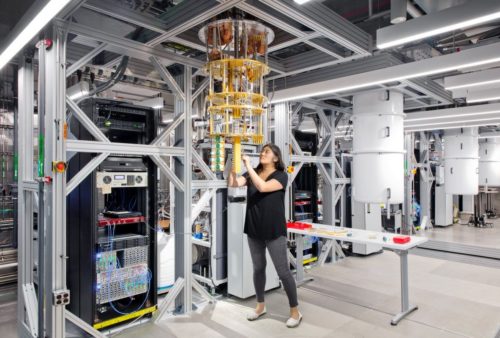Why Physics?
Why Physics?
Physics is a science that has a scope ranging from very small particles (quarks) to the structure of galaxies and the universe. Physics is everywhere and its impact is felt directly by everyone. Learning physics will give you a challenging journey and train your brain to think analytically and systematically. Once trained in physics, arguably you can solve any other problems easily. The technology we enjoy today is the result of the industrial revolution 1.0 to 4.0 developed by physicists which has an impact on human civilization and culture. PHYSICS IS SIMPLY THE MAIN ENGINE OF HUMAN CIVILIZATION in the past, present, and future. A trained physicist not only masters physics knowledge but can also play a role in developing and controlling other branches of science. Of the Six categories of Nobel prizes available (Nobel Prize in Physics, Chemistry, Medicine or Physiology, Economics, Literature, Peace), figures with a physics background have won all of these categories. For example, Alexandr Solzhenitsyn (literature 1970), Linus Pauling (Chemistry 1954 and Peace 1962), Philip Dybvig (Economy 2022), Peter Mansfield (Medicine 2003), Allan Cormack (Medicine 1979), etc.
Future life is characterized by the availability of big data. Such large-scale data and information require data processing methods (algorithms and Artificial Intelligence) and data processing machines or super-large and fast quantum computers. Quantum algorithms and Quantum computers definitely will reign in our future, the question is who can develop a quantum algorithm and build the quantum computer? The answer is clear, people with a quantum physics background (physicist). According to a report from the Global Times, the Chinese quantum computer is 10 million times faster than the current fastest supercomputer (https://thenextweb.com/news/china-says-has-quantum-computer-1-million-times-more-powerful-googles).
So, PEOPLE WITH QUANTUM PHYSICS BACKGROUND AND SKILL IS THE MOST WANTED PERSON IN THE FUTURE JOB MARKET.
In undergraduate and graduate physics program, student will learn and master the basic concept of physics (classical and quantum physics) and its application in everyday life. In physics study program, the theoretical and computational approach, the experimental and measurement methods, instrumentation and control of the systems, synthesis and engineering of physical properties of materials (mechanical, optical, electrical, magnetic, thermal, etc.) are all studied comprehensively. So, there is no aspect of modern industries and technologies left untouched by physicists.




